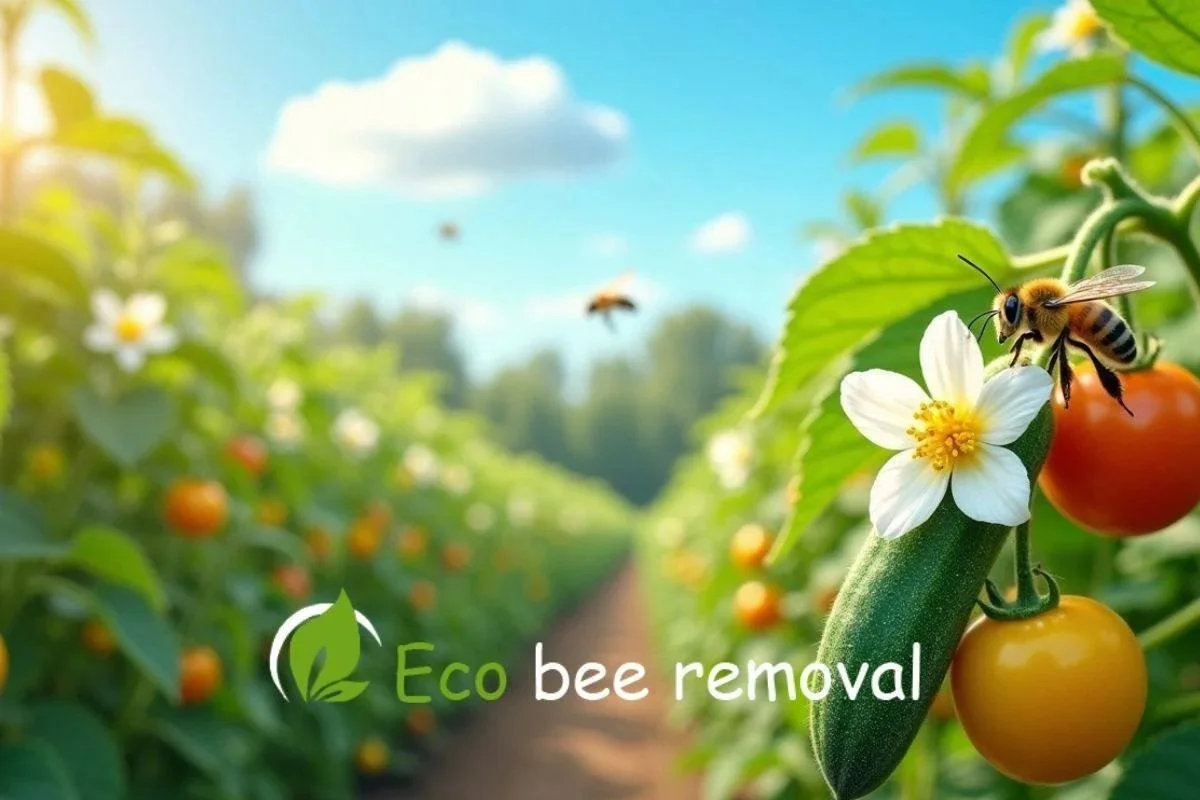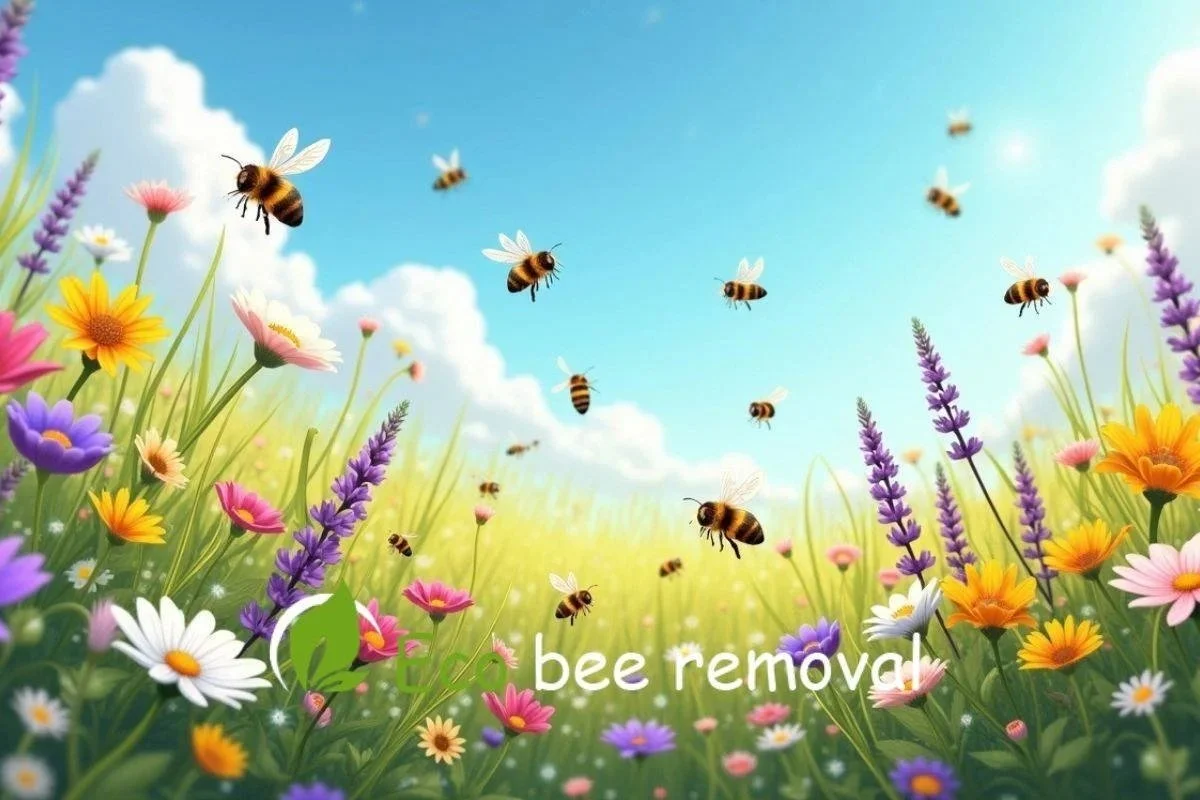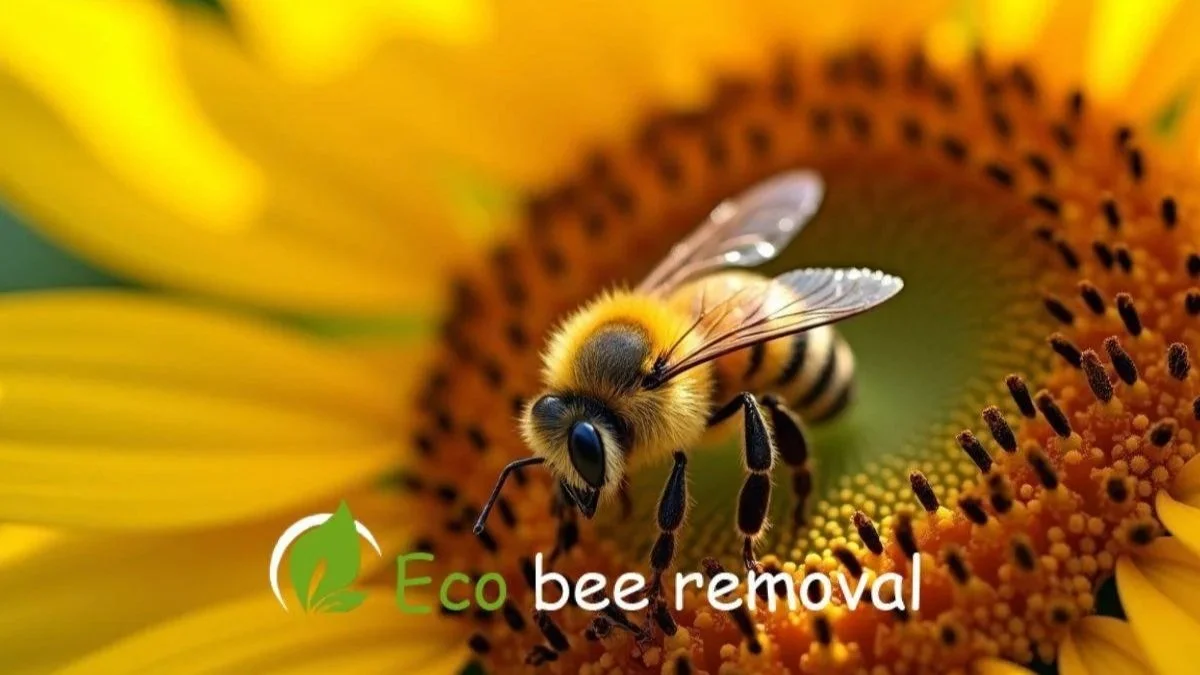The Role of Bees in Our Ecosystem and Pollination.
Bees are some of the most important creatures on Earth, yet they are often misunderstood. Many people think of bees only as honey producers or stinging insects, but their real contribution is far greater. Bees play a critical role in pollination, which supports our ecosystems, agriculture, and food supply. Without bees, much of the natural balance we depend on would collapse.
In this article, we’ll explore the role of bees in the ecosystem, why pollination is so important, the threats bees face, and what we can do to protect them.
Why Bees Are Important for the Ecosystem
Bees are considered a keystone species, meaning they have an outsized impact on their environment. The importance of bees in pollination cannot be overstated. Without their work, many plants would struggle to reproduce, creating a chain reaction that would affect animals, humans, and the global economy.
Here’s why bees are so vital:
Pollination by bees helps ensure fresh fruits and vegetables.
Plant Reproduction: Nearly 75% of flowering plants depend on pollinators. Bees carry pollen from one bloom to another, enabling seeds and fruits to develop.
Wildlife Food Sources: Many animals depend on bee-pollinated plants. If bee populations decline, other species lose vital food sources.
Biodiversity Protection: Bees ensure a variety of plants thrive, which supports the entire ecosystem.
In short, the role of bees in ecosystems is about far more than honey—they sustain life on Earth.
How Pollination Works
Pollination happens when pollen from the male part of a flower (anther) reaches the female part (stigma). This process enables fertilization and seed production.
Bees are uniquely adapted to this task:
Hairy Bodies: Their bodies trap pollen grains as they move.
Nectar Foraging: While collecting nectar for food, they spread pollen between flowers.
Plant Partnerships: Some bees specialize in pollinating specific plants, making them more effective than other insects.
This natural process is essential for both wild plants and crops.
The Role of Bees in Agriculture
When people ask, “Why are bees important?” the best answer is: they help feed the world. Pollinators contribute more than $200 billion annually to the agricultural sector. Without bees, many crops would disappear from our diets.
Bee-Dependent Crops: Almonds, apples, cucumbers, pumpkins, watermelons, and blueberries rely heavily on bee pollination.
Nutrient-Rich Foods: Fruits, nuts, and vegetables—foods that make up a healthy diet—depend on pollination.
Economic Impact: Farmers often hire beekeepers to bring hives to their fields to ensure the success of their crops.
Without bees, the diversity of our food supply would shrink drastically, leaving humans with fewer healthy options.
What Would Happen Without Bees?
Imagine grocery stores without apples, almonds, berries, or cucumbers. That’s the reality if bees continue to decline. Without natural pollinators, farmers would have to rely on artificial pollination, which is costly and far less effective.
Bees maintain biodiversity by pollinating a wide range of plants.
The impact of bee decline would include:
Loss of many fruits and vegetables.
Higher food prices due to reduced crop yields.
Reduced biodiversity in both agriculture and wild ecosystems.
Disruption of the food chain for animals and humans alike.
Bees are small, but their absence would leave a massive gap in global food production.
Threats Facing Bees Today
Sadly, bee populations around the world are in decline. Several factors contribute to this crisis:
Habitat Loss: Urban development and large-scale farming reduce natural nesting and feeding areas.
Pesticides: Chemicals like neonicotinoids harm bees’ ability to navigate and survive.
Climate Change: Shifts in weather disrupt the blooming cycles of plants, leaving bees without food at critical times.
Parasites and Diseases: Varroa mites, fungi, and viruses weaken bee colonies.
Monoculture Farming: Large-scale single-crop farming reduces biodiversity, limiting bees’ food sources.
The combination of these threats makes it harder for bees to survive and thrive.
Why Protecting Bees Matters
Protecting bees is not only about saving an insect—it’s about securing our future. Bees are directly linked to:
Food Security: Healthy bee populations mean stable food supplies.
Economic Growth: Agriculture relies on natural pollinators to remain sustainable.
Climate Resilience: Strong ecosystems, supported by bees, are better able to adapt to climate challenges.
By saving the bees, we are protecting biodiversity, food security, and human survival.
How to Help Save the Bees
The good news is that everyone can play a part in protecting bees. Here are some steps to make a difference:
Plant Pollinator-Friendly Flowers: Grow native plants that bloom across seasons.
Avoid Harmful Pesticides: Choose organic and natural gardening solutions.
Support Local Beekeepers: Buying local honey encourages ethical beekeeping.
Provide Nesting Spaces: Leave natural areas of soil, logs, or wood for wild bees.
Educate and Advocate: Raise awareness about the importance of bees in the ecosystem and support policies that protect them.
Even small changes in our backyards and communities can collectively have a big impact.
Final Thoughts
The role of bees in our ecosystem and pollination cannot be ignored. They are essential for plant reproduction, food security, biodiversity, and climate resilience. Yet, bee populations face serious threats that require urgent action.
By making conscious choices—planting bee-friendly gardens, avoiding pesticides, and supporting local beekeepers—we can ensure these pollinators continue to thrive. Protecting bees is not just an environmental cause—it is an investment in our own survival and the health of the planet.
If we want to enjoy fresh fruits, vegetables, and a thriving natural world for generations to come, we must do everything possible to save the bees today.
Bees are nature’s best pollinators, supporting plant reproduction.



